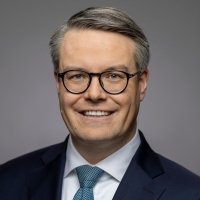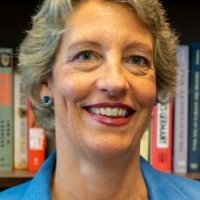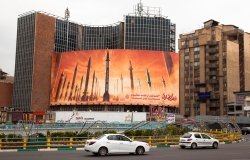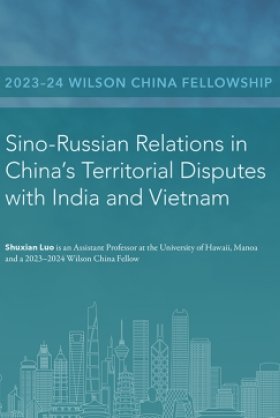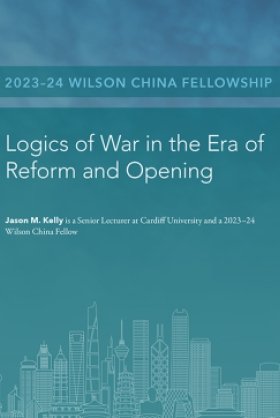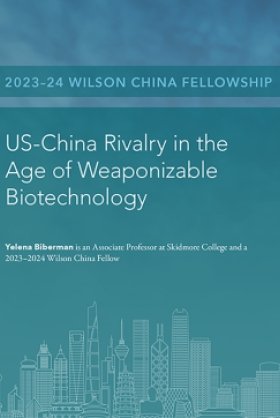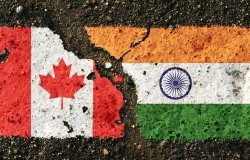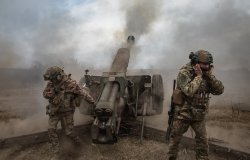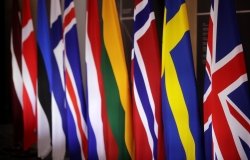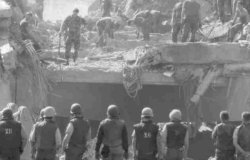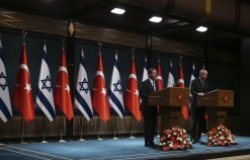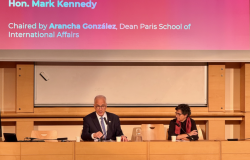Russia’s Aggression Towards Ukraine – the German View: A Conversation with Minister of State Tobias Lindner
Overview
As fears of a Russian invasion of Ukraine are growing, Germany plays an important role in how Europe addresses the security, diplomatic and economic dimensions of the crisis. With German Chancellor Olaf Scholz visit to Washington on February 7, attention is focused on the prospects for coordinated action between the U.S. and Germany to avoid another war in Europe.
The Wilson Center President Ambassador Mark Green and Wilson Fellow Hope M. Harrison joined in a conversation with State Minister Tobias Lindner of Germany’s Foreign Office about Germany’s position in the stand-off between Russia and Ukraine, coordination within NATO, potential sanctions, and Chancellor Olaf Scholz’ visit at the White House.
Key Takeaways
- Germany, the United States, and the European Union remain committed to preventing Russian aggression in Ukraine. Minister of State Lindner emphasized that credible economic deterrence and a strong will for dialogue will be the solution. The United States and European Union made it clear to Moscow they are willing to continue the dialogue, but in different formats.
- Minister of State Lindner stressed that stopping Nord Stream 2 is part of the sanctions package to deter Russia. No one in Germany opposes Nord Stream 2 being part of the sanctions package. Lindner's own party, the Green Party, has been against Nord Stream 2 since the beginning - for climate reasons.
- The time Vladimir Putin chose to escalate is no coincidence according to State Minister Lindner. Europe is going through a significant change in leadership since Angela Merkel left office in 2021. Putin tried to seize the moment and thought the German government would be weak – a significant miscalculation, State Minister Lindner assured.
Selected Quotes
State Minister Tobias Lindner: The U.S. and Europe United Approach to Ukraine
“Great to discuss today about the situation in Ukraine and how we can act united and even though we might have different roles, how we can achieve common goals. So first of all, let me be very crystal clear, there is no difference between Europe, between Germany and the U.S. in our goals when you look at the situation in Ukraine. I would say there are three goals we want to achieve: First of all, to protect Ukraine from the third violation of its territorial integrity through Russia, and our second goal is that we wanna become and preserve Ukraine as a successful Western state, and last but not least, we want to protect and to preserve the international rules-based order.”
State Minister Tobias Lindner: Germany's Views on Security Have Changed
“I believe the security assessment and how we perceive the security situation in the East has changed over the last years in Germany. You know that we had tremendous increases also in our defense spending in Germany.For many years many Germans saw the purpose of the armed forces to deploy in the framework of the United Nations for instance. Now it's clear also to the majority of the German public that we need to have armed forces for defense, for collective defense in Europe. By the end of this year we will have for the first time something we call a national security strategy, and we want to have a more coherent approach in our foreign and security policy. My party, I, my minister, we are convinced that you cannot separate economic issues from security issues.”
State Minister Tobias Lindner: No Coming Back From Status Quo
“For my government it is very clear there is no comeback of the status quo ante, in terms of that we would be lowering the sanctions that had already been imposed and are still in action when it comes to Russia. We are very clear that Russia is excluded from the G7 and we will continue with the policy. So it is with Russia if they want to go back but it would mean they would have to go back to the status quo ante. I don't believe that it's likely. But we are very clear on that:we will never ever accept the annexation of Crimea. Full stop. Very, very clear on that. In the moment, we are at the brink, as you said, in risking those international principles. Russia pressures us from excluding Ukraine being a NATO member, and as even Mikhail Gorbachev said, I believe in 88 or 89in front of the European Council, it is the independent right of a nation to decide whether they want to be part of an alliance or whether or not. And this is a clear red line. It's principle we are not willing to give up.”
Hope Harrison: Putin’s Motive and Ultimate Self-interest in Ukraine
“So, we're all facing a challenge from the Russians, they have essentially manufactured a crisis where there was no objective crisis and they keep ramping up the pressure. That puts us all, the U.S., Germany, the EU, NATO, in a very difficult position and Putin of course knows this and is doing his best to play on it. He sees the initiative and we're all on the defensive looking for ways to give Putin an off-ramp, a way to pull back without losing face. That is in all of our interests. I think it's ultimately in Putin’s interest as well.”
This event is part of the Wilson Center's Hindsight Up Front | Ukraine initiative.
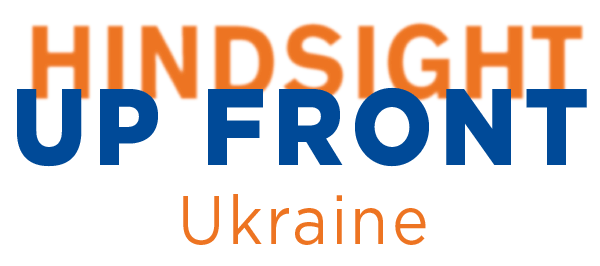
Wilson Center
Moderators
Hosted By

Global Europe Program
The Global Europe Program is focused on Europe’s capabilities, and how it engages on critical global issues. We investigate European approaches to critical global issues. We examine Europe’s relations with Russia and Eurasia, China and the Indo-Pacific, the Middle East and Africa. Our initiatives include “Ukraine in Europe” – an examination of what it will take to make Ukraine’s European future a reality. But we also examine the role of NATO, the European Union and the OSCE, Europe’s energy security, transatlantic trade disputes, and challenges to democracy. The Global Europe Program’s staff, scholars-in-residence, and Global Fellows participate in seminars, policy study groups, and international conferences to provide analytical recommendations to policy makers and the media. Read more

Kennan Institute
The Kennan Institute is the premier US center for advanced research on Eurasia and the oldest and largest regional program at the Woodrow Wilson International Center for Scholars. The Kennan Institute is committed to improving American understanding of Russia, Ukraine, Central Asia, the South Caucasus, and the surrounding region though research and exchange. Read more
Thank you for your interest in this event. Please send any feedback or questions to our Events staff.


